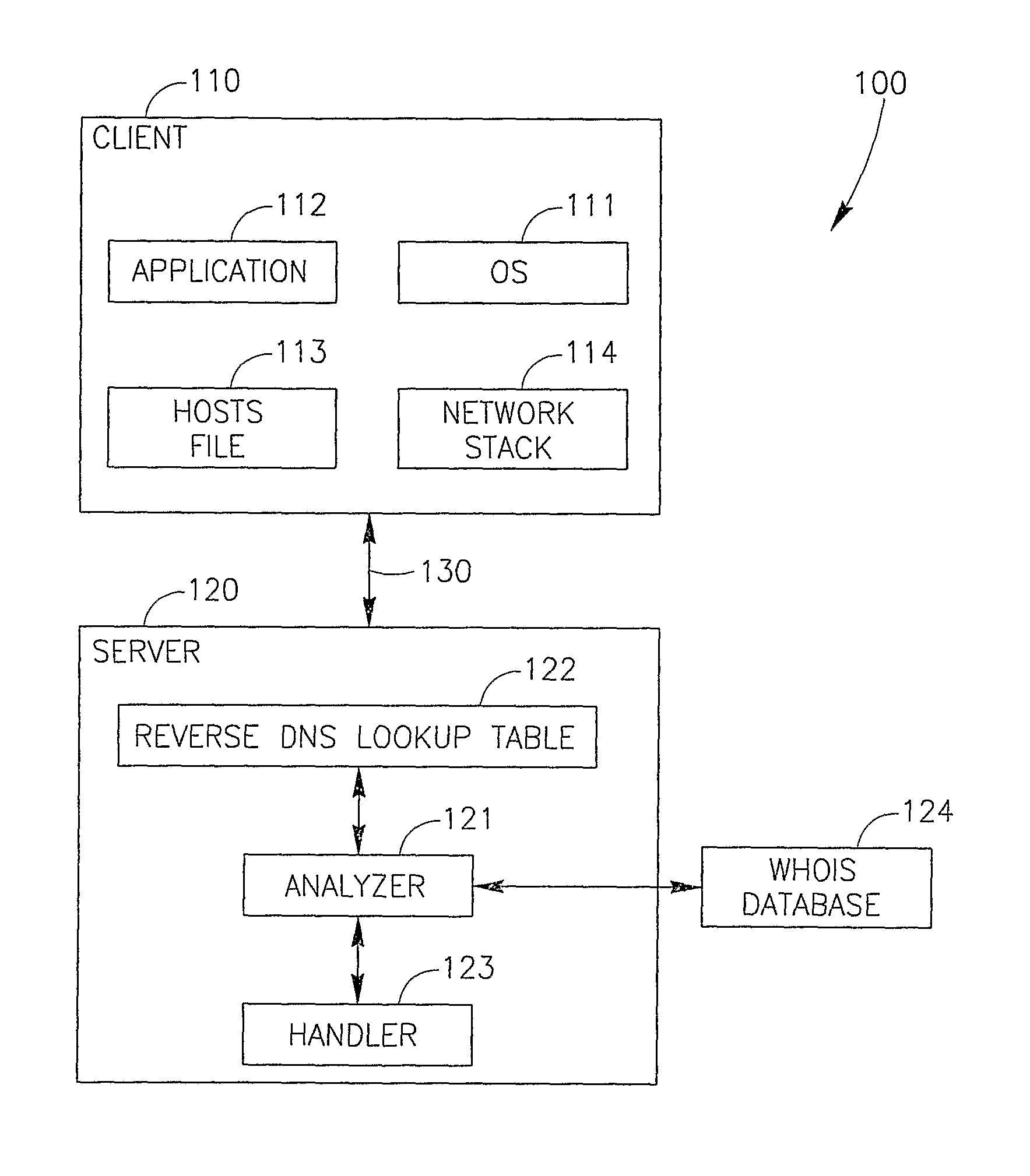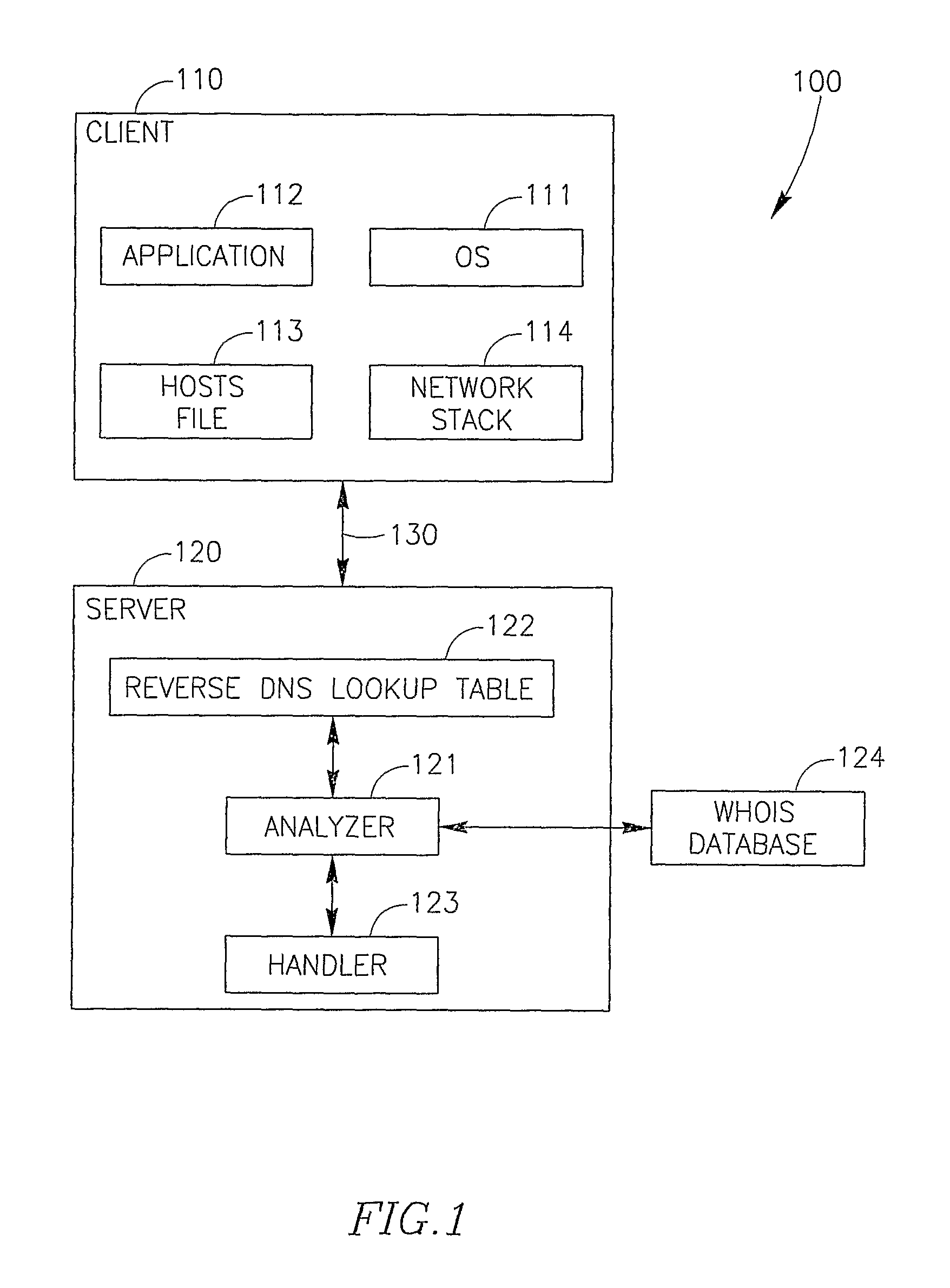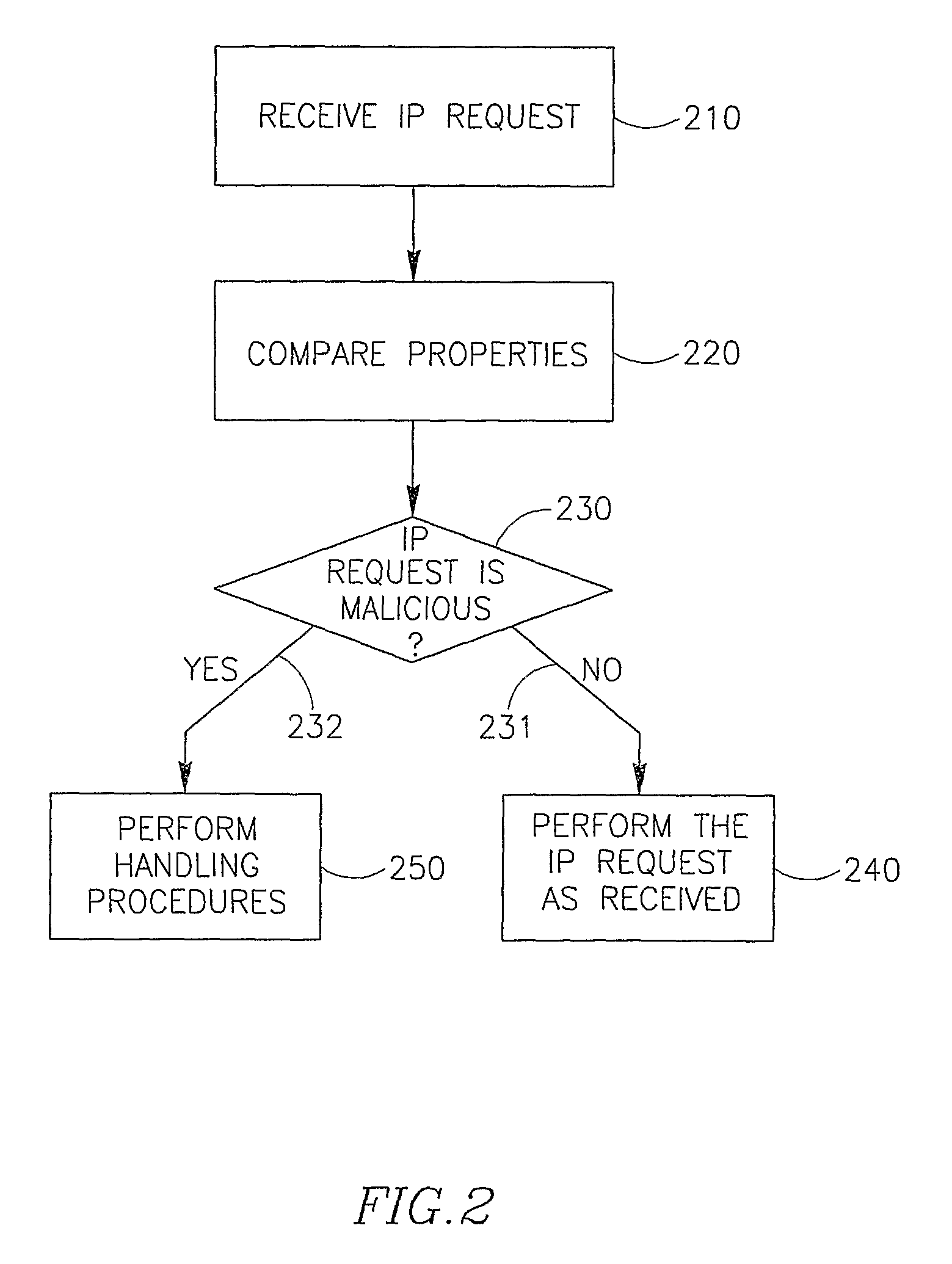System and method for detecting and mitigating DNS spoofing trojans
a technology of spoofing trojans and detection methods, applied in the field of internet communication, can solve problems such as inability to provide an adequate solution to internet service providers, and achieve the effect of preventing connection
- Summary
- Abstract
- Description
- Claims
- Application Information
AI Technical Summary
Benefits of technology
Problems solved by technology
Method used
Image
Examples
Embodiment Construction
[0028]In the following description, various aspects of the present invention will be described. For purposes of explanation, specific configurations and details are set forth in order to provide a thorough understanding of the present invention. However, it will also be apparent to one skilled in the art that the present invention may be practiced without the specific details presented herein. Furthermore, well-known features may be omitted or simplified in order not to obscure the present invention. Various examples are given throughout this description. These are merely descriptions of specific embodiments of the invention, but the scope of the invention is not limited to the examples given.
[0029]In the following example embodiment of the present invention, an Internet service provider (ISP) may be provided with the ability to detect (and mitigate) from a remote location or device the existence of a DNS spoofing Trojan at some of its clients.
[0030]Typically, the ISP may monitor al...
PUM
 Login to View More
Login to View More Abstract
Description
Claims
Application Information
 Login to View More
Login to View More - R&D
- Intellectual Property
- Life Sciences
- Materials
- Tech Scout
- Unparalleled Data Quality
- Higher Quality Content
- 60% Fewer Hallucinations
Browse by: Latest US Patents, China's latest patents, Technical Efficacy Thesaurus, Application Domain, Technology Topic, Popular Technical Reports.
© 2025 PatSnap. All rights reserved.Legal|Privacy policy|Modern Slavery Act Transparency Statement|Sitemap|About US| Contact US: help@patsnap.com



